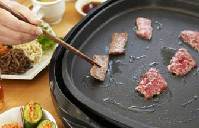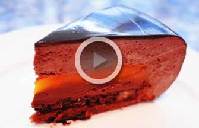Barbecue or bust
 |
|
The Yunnan restaurant In& Out in Beijing offers dinners Dai ethnic-style barbecue. Photo provided to China Daily |
 |
 |
If you roast with an electric oven, the process will be slower. The juice in the beef will drain out, and the result will be dry meat.
Named after the Korean fortress Gwongeumseong, Quan Jin Cheng has 23 branches in Beijing, most of which have specialized in meat barbecued over charcoal. The new ban in Beijing means any new branch will have to use gas or electricity. Between the two, gas is better, he says, because it is easy to monitor and it grills meat better. The company's new Shijingshan branch, to open in August, uses gas.
"But charcoal-grilled meats taste best," he insists.
The restaurant is required to install air-purification equipment for all its old charcoal grill restaurants to prevent pollution. That is another incentive to use gas in the future, because purification equipment is costly.
The ban applies generally to Beijing and its suburbs. As to remote parts of Beijing, it depends on the district government's regulations.
Kristian Li, one of two founders of Jing-A Brewery, a popular craft beer maker in Beijing, says it would be a pity not to have open-air barbecue in Beijing.
"I think it is one of the best things about Beijing, to try kebabs in a hutong over a glass of beer, or Erguotou clear liquor," says the Canadian, who lives in Sanlitun. But if it is about pollution, then "maybe it's a good idea (to ban it)", he says.
Foreigners like to grill outside in their own communities, in a yard or on a balcony, or in designated areas. Although there is a ban, people can probably still do it in some distant part of Beijing.
"Some remote corners like Shunyi might still be able to do it," he says.
















